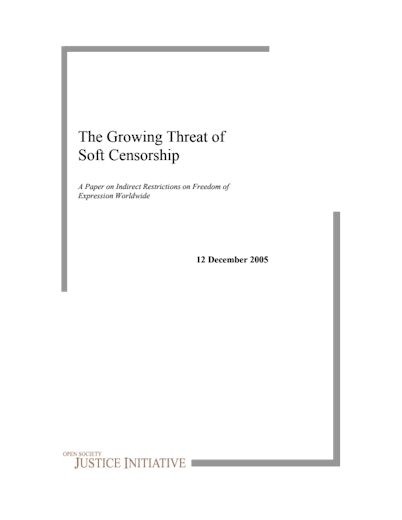The Growing Threat of Soft Censorship
In Kazakhstan, the government cancelled publishing contracts with opposition newspapers in the run-up to the December 4 presidential election. In like-minded Belarus, the government's monopolistic press distribution agency announced that it will cease distribution of private newspapers during the upcoming presidential election year. And in Russia, the Putin administration has perfected the art of taking over, through state companies or political allies, critical media that it cannot otherwise control.
Even in generally democratic Botswana, President Mogae has abused immigration laws to expel a critical academic who was a long-time resident but happened to hold a foreign passport. And in Bulgaria, a European Union candidate, newspapers exposing financial mismanagement are known to receive selective and carefully-timed visits by tax inspectors.
Different as their contexts may be, these abuses have two things in common: they are "nontraditional" and of growing concern, in the characterization of Eduardo Bertoni, the free speech watchdog of the Organization of American States. This style of censorship—not entirely new, but increasingly employed around the world—is subtle, indirect, and sophisticated. To control critical voices, it prefers to inflict financial pain, manipulate regulatory leverage or act under the disguise of the law—as opposed to the more "traditional" methods of beating and arbitrarily detaining journalists, or burning down media houses. Not even established democracies are immune to this syndrome: the Bush administration has reportedly paid journalists to plant covert propaganda pieces, in both United States and Iraqi media.
From the perspective of free speech activists, it is, in a way, the price of success: as greater domestic and international exposure raises the costs of heavy-handed censorship, governments around the world increasingly opt for less visible, but equally effective ways of meddling with free expression. In the words of Pius Njawe, a leading African journalist and activist, such "sophisticated repression requires a sophisticated response."
Topics
- Climate Justice
- Digital Rights and Fair Elections
- Discrimination and Racial Justice
- International Crimes
